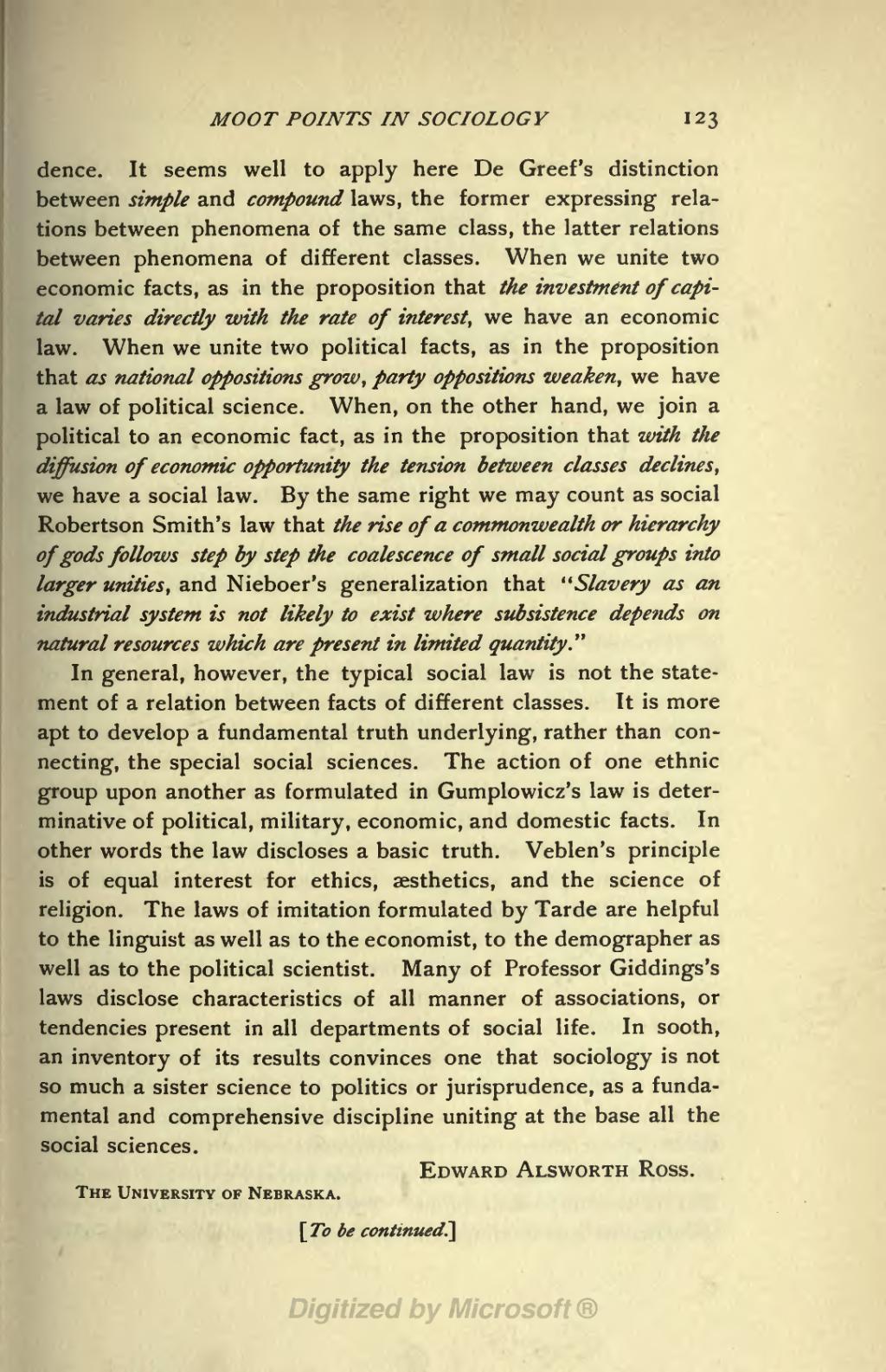MOOT POINTS IN SOCIOLOGY 123
dence. It seems well to apply here De Greef's distinction between simple and compound laws, the former expressing rela- tions between phenomena of the same class, the latter relations between phenomena of different classes. When we unite two economic facts, as in the proposition that the investment of capi- tal varies directly with the rate of interest, we have an economic law. When we unite two political facts, as in the proposition that as national oppositions grow, party oppositions weaken, we have a law of political science. When, on the other hand, we join a political to an economic fact, as in the proposition that with the diffusion of economic opportunity the tension between classes declines, we have a social law. By the same right we may count as social Robertson Smith's law that the rise of a commonwealth or hierarchy of gods follows step by step the coalescence of small social groups into larger unities, and Nieboer's generalization that "Slavery as an industrial system is not likely to exist where subsistence depends on natural resources which are present in limited quantity"
In general, however, the typical social law is not the state- ment of a relation between facts of different classes. It is more apt to develop a fundamental truth underlying, rather than con- necting, the special social sciences. The action of one ethnic group upon another as formulated in Gumplowicz's law is deter- minative of political, military, economic, and domestic facts. In other words the law discloses a basic truth. Veblen's principle is of equal interest for ethics, aesthetics, and the science of religion. The laws of imitation formulated by Tarde are helpful to the linguist as well as to the economist, to the demographer as well as to the political scientist. Many of Professor Giddings's laws disclose characteristics of all manner of associations, or tendencies present in all departments of social life. In sooth, an inventory of its results convinces one that sociology is not so much a sister science to politics or jurisprudence, as a funda- mental and comprehensive discipline uniting at the base all the social sciences.
EDWARD ALSWORTH Ross.
THE UNIVERSITY OF NEBRASKA.
\To be continued]
